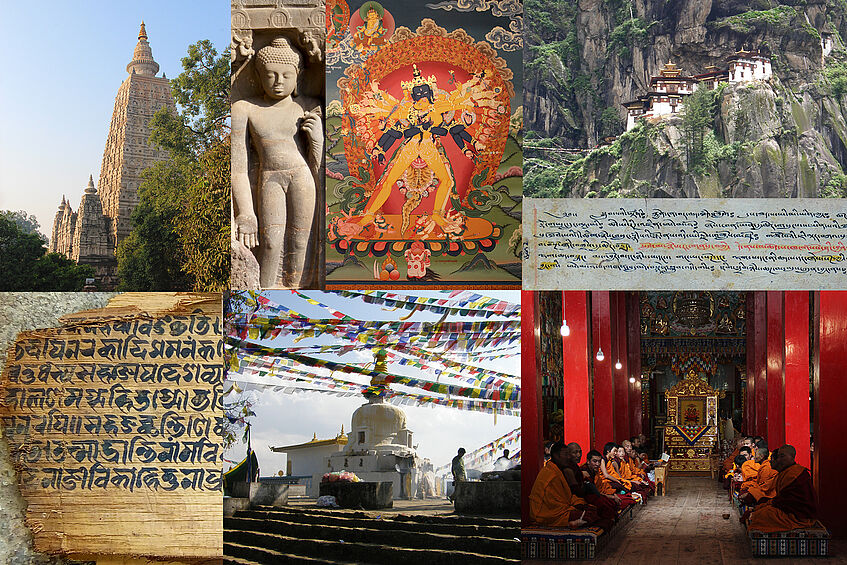Tibetology and Buddhist Studies (Master)

© Unversität Wien / Institut für Südasien-, Tibet- und Buddhismuskunde
The master’s programme in Tibetology and Buddhist Studies investigates the cultural and social developments in Tibet and their pre-modern prerequisites in the area of history of philosophy and religion, history, history of literature, social and cultural anthropology and history of arts from a philological perspective. In addition, the master’s programme explores the diversity and historical development of the religious and philosophic traditions of Buddhism in the past and present, with a particular focus on the philosophical and religious schools and traditions. Furthermore, it focuses on the interdependencies between these traditions and other traditions with which Buddhism came in contact over the course of its development and spread, as well as on the role of Buddhism in cultural contexts, such as literature, science, (regional) history, politics, society and arts.
Facts & Figures
- Students: n.a.
- Graduates in the last academic year: n.a.
- Number of semesters needed for graduation (median): n.a.
Data updated on: 03.12.2024
Attention
Instruction Language German
Please note that the instruction language of this programme is German. To start the degree programme, you need to hold a certificate of German proficiency on C1 level.
Admission Procedure
Information about the admission procedure
Information on Previous Studies:
In any case eligible degree programmes at the University of Vienna:
Study Programme
The master’s programme consists of modules on the following subjects:
Philology and methodology; text hermeneutics; alternative compulsory modules (introduction to another language of the Buddhist cultural region; advanced language acquisition); Tibetan studies and Buddhist studies; philosophical and religious traditions of Tibet and Buddhism; literature, history and culture of Tibet and Buddhism; master’s module on Tibetan studies and Buddhist studies; master’s thesis and master’s examination.
Five Concepts
which you will deal with during your studies:
- Classical Tibetan
- Sanskrit
- Philology
- Pali
- Literary genres
... and many more.
Overview of the programme structure & topics
Here you find the current offer of courses for this programme to gain better insight into the topics and structure. For more information please click on the respective level.
After Graduation
Graduates are qualified to work in a wide range of occupational areas: university and non-university teaching and research institutions, museums and libraries in the area of culture and education, publishing, journalism and media, diplomatic service and development cooperation, tourism, and other professions that require sound academic knowledge and intercultural sensitivity and openness in relation to Tibet and Buddhism.
Graduates' Perspective on the Degree Programme
Graduates ...
- find employment within 2 months after graduation on average.
- earn an average of € 2,719 (women) and € 2,702 (men) gross per month within three years after graduation.
- work full time at a percentage of 68% (women) and 62% (men) within three years after graduation.
*You can find further information on career entry and career paths in the tracking of graduates "Arts and Humanities".
